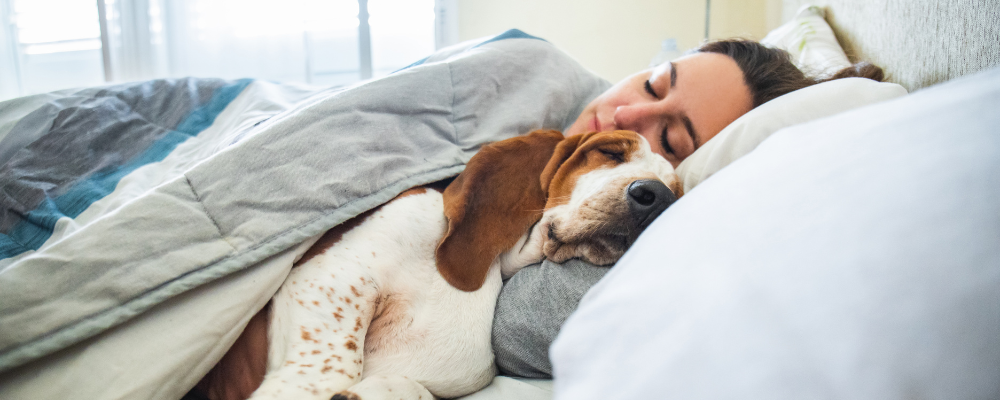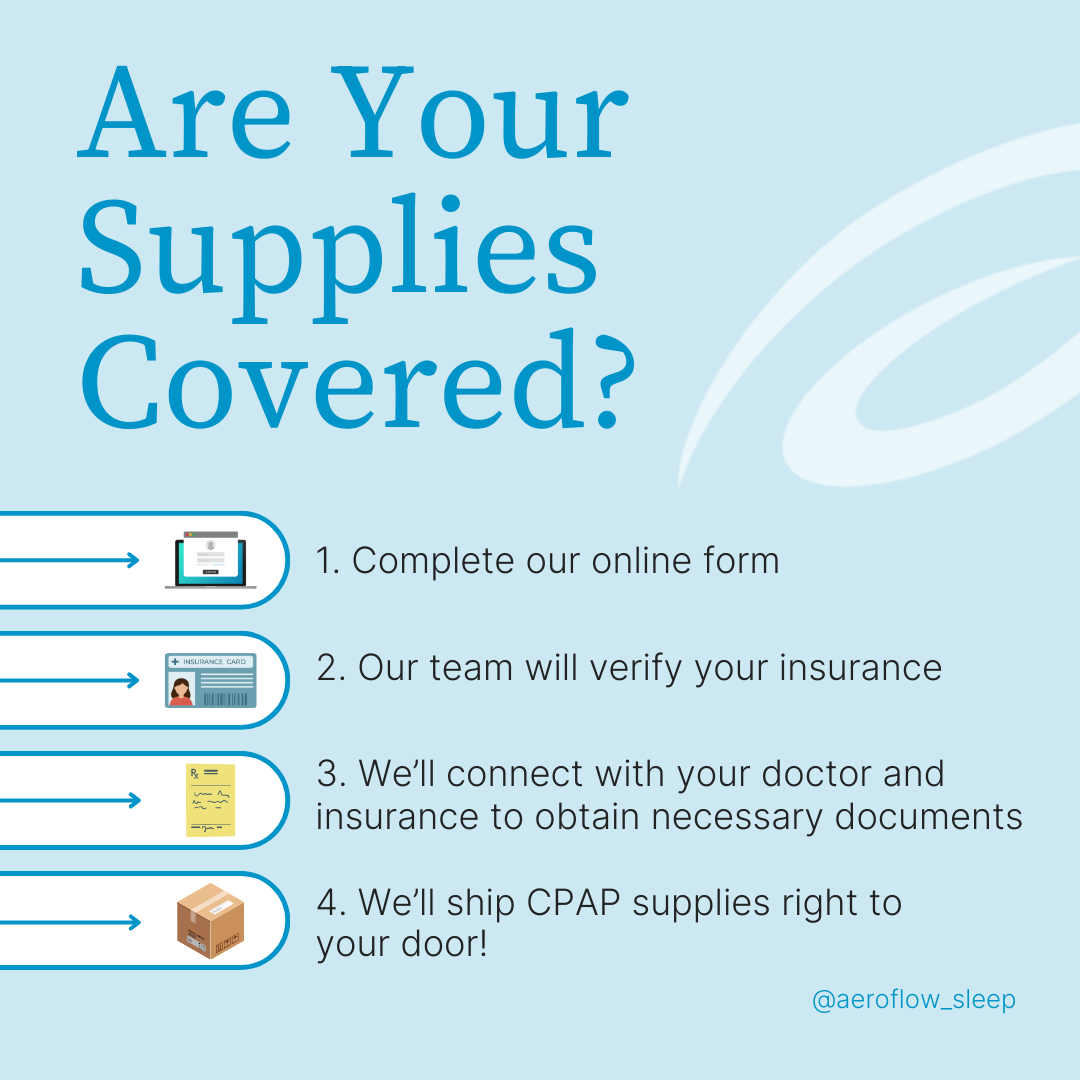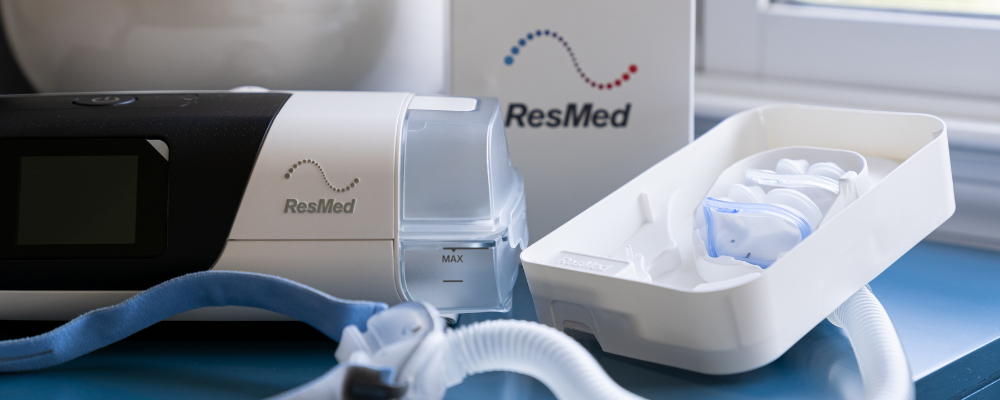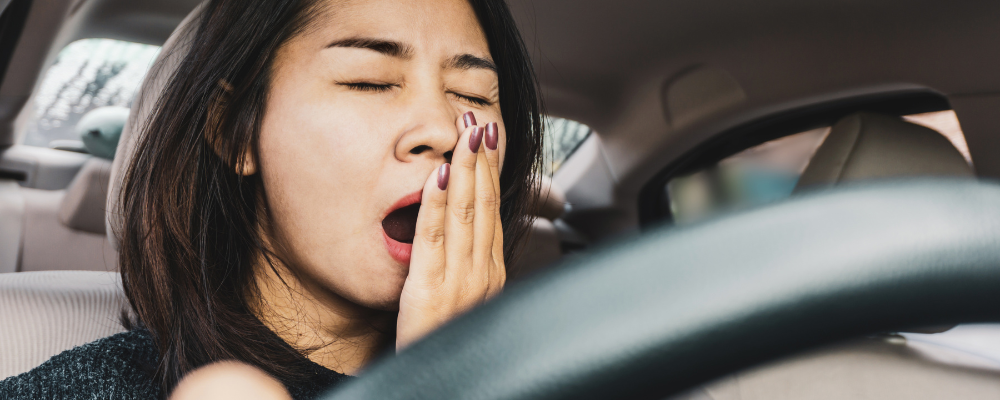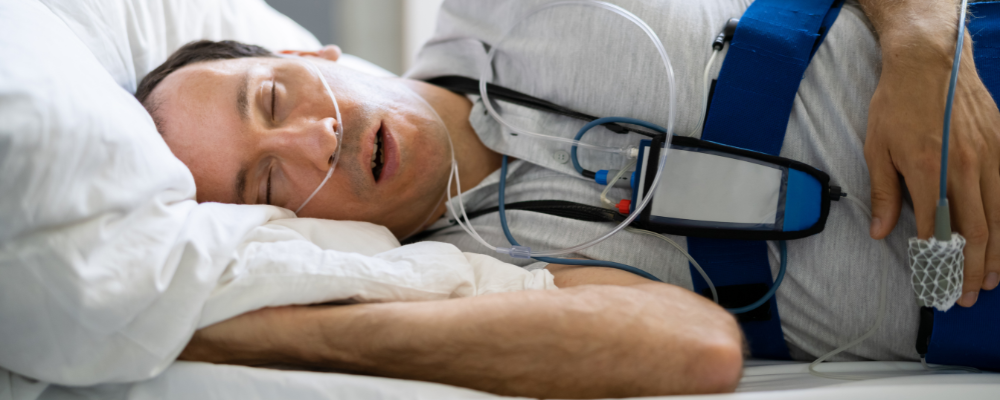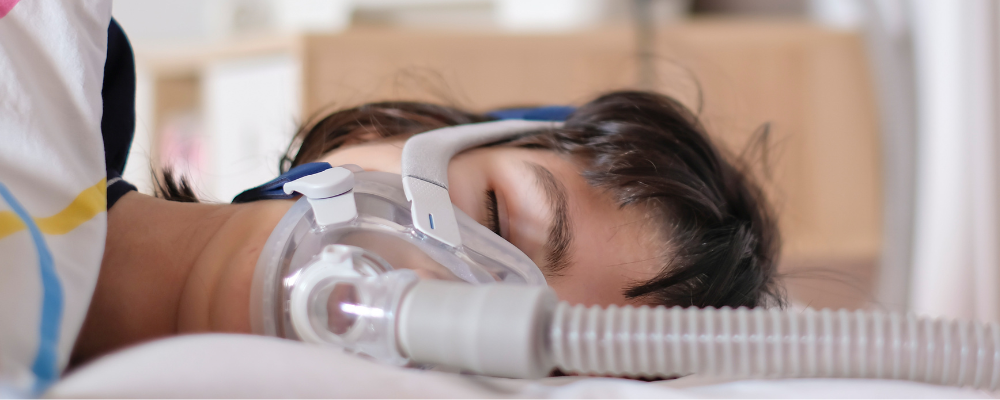According to the Americans with Disabilities Act, a service animal is “a dog that has been trained to complete a task for an individual with a disability.” But is sleep apnea technically a disability? And can a trained service dog help you manage your sleep disorder? Let’s find out!
Can A Service Animal Help With Sleep Disorders?
Yes, a service animal can help with sleep disorders. In fact, with specialized training, service dogs are able to identify when an individual may be experiencing a sleep disturbance; like sleepwalking or having issues breathing while sleeping. This is especially beneficial for individuals who deal with sleep problems—like sleep apnea, narcolepsy, or night terrors—because a trained service dog can help take action in a number of ways. For example, a service animal may assist by waking a caregiver from a nightmare, clearing an unsafe environment for a sleepwalker, or by providing a sense of security when one wakes suddenly gasping for air.
A sense of security can be a big one, because sleep disorders can sometimes happen alongside mental health disorders. Post-traumatic stress disorder (or PTSD,) for example, is connected with sleep apnea. In instances like these, studies show that individuals who suffer from a combination of PTSD and a sleep disorder notice their symptoms become significantly reduced with the help of a service animal.
While a service animal can help with your sleep disorder, it’s important to note that you must be diagnosed with a physical or mental disability that negatively impacts your day-to-day life in order to get a service animal. If your sleep disorder is severe enough to impact your daily life, only then may you qualify for a service animal. Chat with your healthcare provider for more information!
Is Sleep Apnea A Disability?
No, sleep apnea is not considered a disability on its own. This is mandated under United States law. However, you may qualify for a disability under the Social Security Administration (SSA) if you have other health issues in addition to your sleep apnea. Breathing or heart problems that prevent you from working or earning a wage are considered disabilities, and depending on the severity of your obstructive sleep apnea (OSA,) will enable you to claim disability.
Teresa Power DeNike, a board-certified clinical sleep educator and one Sleep Science Advisor for Aeroflow Sleep, shares, “We know that people who have sleep apnea are at increased risk for coronary artery disease, congestive heart failure, and stroke. These conditions may cause changes to your health and lifestyle that would warrant additional support.”
"...people who have sleep apnea are at increased risk for coronary artery disease, congestive heart failure and stroke...that would warrant additional support." - Teresa Power DeNike
Ultimately, in order to get a service animal for your sleep apnea you must meet specific criteria. This includes having a diagnosed disability that negatively impacts your day-to-day activities and being able to demonstrate a need for a service animal to directly support that disability.
What Are The Benefits Of Having A Service Dog For Sleep Apnea?
The official US Service Animals website states a service dog can help sleep apnea patients by...
- Offering support when you may feel sleep-deprived or depressed
- Ensuring your PAP mask stays in place while sleeping
- Getting help if you stop breathing while sleeping
- Helping you maintain the right sleeping position
Not all dogs are considered service animals; it must be trained to assist you and your specific needs. This is different from a therapy dog or emotional support animal (ESA,) which can help alleviate anxiety, depression, and/or loneliness.
“Research shows that individuals with sleep apnea are more likely to experience depressive symptoms,” Power DeNike adds. However, animals like emotional support dogs do not have specialized training to effectively assist with sleep disturbances; only the emotional needs.
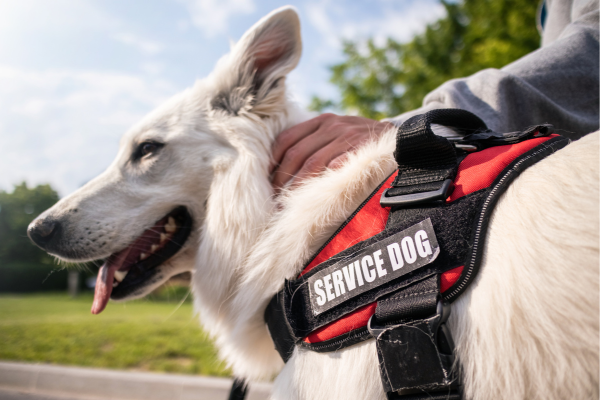

Is It Essential To Have A Service Dog If You Have Sleep Apnea?
There are clear and obvious benefits to having a service dog for sleep apnea, but it is not essential that you have one. In fact, most sleep apnea patients will not qualify for one. It's still recommended that you speak to your doctor first if you think you may benefit from a service dog, of course.
It's true that a service animal may be helpful for sleep apnea patients; however, the most common treatment option for OSA remains continuous positive airway pressure (or CPAP.) “Not only does treating OSA reduce the risk of heart attack and stroke, it is also known to help improve mood disorders over time,” encourages Power DeNike.
If you have been diagnosed with sleep apnea, it's critical to work with your doctor to determine a treatment plan that’s best for you and your well-being. Already prescribed with CPAP therapy? Aeroflow Sleep can help you get your new PAP supplies covered up to 100% through your insurance. See if you qualify today!
References
“Frequently Asked Questions about Service Animals and the ADA.” ADA.Gov, U.S. Department of Justice: Civil Rights Division, 28 Feb. 2020, www.ada.gov/resources/service-animals-faqs/.
Rafner, Laura. “Benefits of Service Dog Support On Sleep Disorders.” New Life K9s Service Dogs, New Life K9s, 12 Mar. 2021, www.newlifek9s.org/news-events/blog/service-dog-blog.html/article/2021/03/12/benefits-of-service-dog-support-on-sleep-disorders.
“Service Dogs For Sleep Apnea.” US Service Animals, US Service Animals, 30 Dec. 2023, usserviceanimals.org/blog/service-dog-for-sleep-apnea/.
Li, M., Zou, X., Lu, H. et al. Association of sleep apnea and depressive symptoms among US adults: a cross-sectional study. BMC Public Health 23, 427 (2023). https://doi.org/10.1186/s12889-023-15358-8


